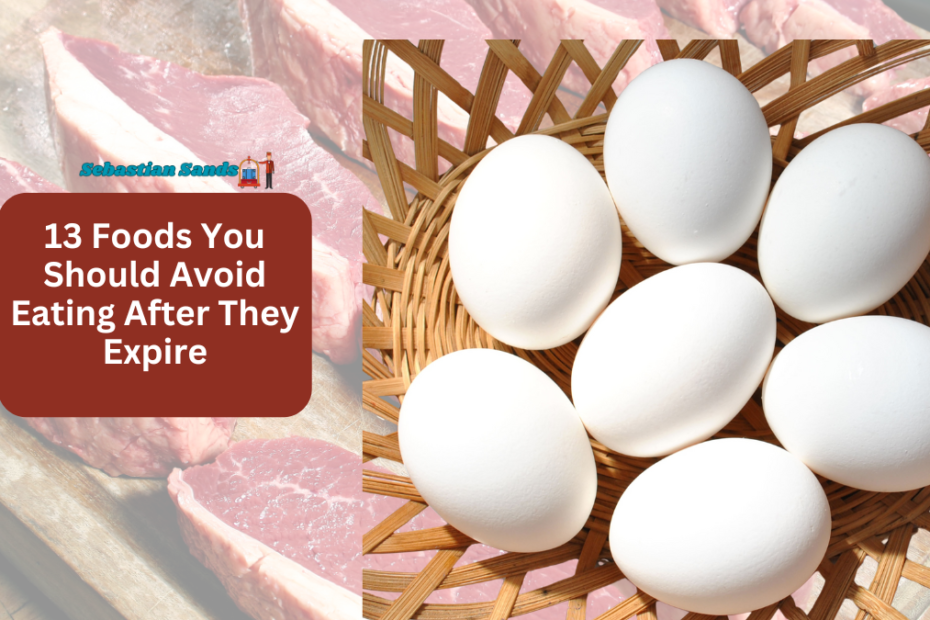Understanding food expiration dates can be confusing. While it’s tempting to keep eating foods past their “use by” or “best before” dates, some items can become unsafe or less nutritious over time. Here’s a guide to help you navigate which foods you should definitely avoid once they’ve expired.
1. Infant Formula
Infant formula is one food you shouldn’t take chances with. Federal law requires expiration dates on formula to ensure it contains the necessary nutrients for babies. After the expiration date, the nutrient levels can drop, making it less suitable for infants. Always check the date and discard any formula past its “use by” date.
2. Meats
Ground beef, chicken, and other meats can be risky past their expiration date. While they might still be safe to eat, you need to watch out for spoilage signs like bad odor, discoloration, and mold. For a quick test, press down on the meat: if it bounces back, it’s likely still good; if the imprint stays, it’s time to toss it.
3. Eggs
Eggs can still be usable after their expiration date, but you need to be cautious. A simple float test can help: place the egg in a bowl of water. If it sinks and lays flat, it’s fresh. If it stands upright, it’s older but still okay. If it floats, it’s past its prime and should be discarded. Also, any foul smell when cracked is a clear sign to throw it away.
Read More : Popsicle Recall 2024: A Serious Health Risk For Dairy Allergy Sufferers
4. Soft Cheeses
Soft cheeses like cream cheese, ricotta, and cottage cheese are more prone to spoilage. Unlike hard cheeses, mold on soft cheeses can spread beyond what you can see. Harmful bacteria such as listeria and salmonella can grow with the mold, making it unsafe to eat after the expiration date.
5. Deli Meats
Deli meats have a high moisture content, which can lead to quicker spoilage. If your deli meats develop a sour smell or slimy texture, they’re likely no longer safe to eat. Always check these signs and avoid consuming them past their expiration dates.
6. Fiddleheads
Fiddleheads are unique springtime vegetables that can be toxic if consumed after their expiration date. These delicate ferns can emit toxins over time, so it’s best to use them fresh and discard any past their prime.
7. Strawberries
Strawberries are another item that should be eaten before their expiration date. Mold can quickly spread through a container of strawberries, contaminating the entire batch. If you see mold, it’s best to discard them. To extend their shelf life, consider freezing them if they’re nearing their expiration.
Read More : Find The Cheapest Taco Bell Locations In Your Area With This Website
8. Ground Spices
Although expired ground spices may not pose a health risk, they can lose their flavor. Spices like cinnamon, paprika, and cumin become less potent over time. Store them in airtight containers away from heat and sunlight to keep them flavorful.
9. Restaurant Leftovers
Restaurant leftovers can be tricky. Bacteria can multiply if they sit at room temperature for too long. To stay safe, consume leftovers within three to four days. The quality may also deteriorate, leading to dry and less tasty food.
10. Raw Fish
Raw fish should be used quickly. If it’s been stored improperly or has an off smell, it’s best to avoid eating it. Seafood should be cooked within one to two days of purchase or frozen immediately. Spoiled fish often has a strong sour or fishy odor.
11. Leafy Greens
Leafy greens like spinach and kale should be eaten before they reach their expiration date. Over time, these greens can become bitter and develop an unpleasant taste. They also pose a risk for foodborne illnesses if consumed too late.
12. Nuts
Nuts contain unsaturated fats, which can go rancid quickly. If nuts taste bitter or sour, they’re past their prime. Store nuts in airtight containers in a cool, dark place to maintain freshness for a few months.
Read More : Chipotle Launches Halloween Costumes In Collaboration With Spirit Halloween
13. Cooking Oils
Cooking oils typically last about a year unopened and six months once opened. Rancid oil has a bitter taste and should be discarded. Store oils in dark glass bottles away from light and heat to prolong their shelf life.
By paying attention to these guidelines, you can avoid unnecessary waste and stay safe while enjoying your food. Always use your senses and good judgment to determine if food is still good to eat, and when in doubt, it’s better to err on the side of caution.
Thanks for visiting our site hope you like it and find it helpful..
